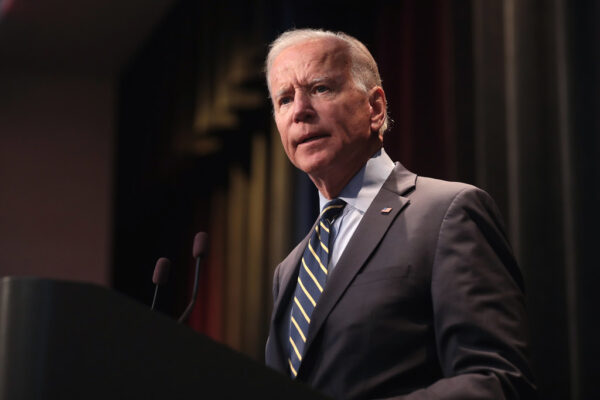President Joe Biden Tuesday exercised his clemency powers for the first time in his administration, issuing three pardons and 75 commutations nationally — including two sentence commutations to prisoners with ties to Los Angeles County.
“Today, I am pardoning three people who have demonstrated their commitment to rehabilitation and are striving every day to give back and contribute to their communities,” Biden said in a statement. “I am also commuting the sentences of 75 people who are serving long sentences for non- violent drug offenses … many of whom would have received a lower sentence if they were charged with the same offense today, thanks to the bipartisan First Step Act.”
Two of Biden’s commutations went to Roberto Barrio of South Gate and Charles Arnold Thomas of Inglewood, who were both serving lengthy federal sentences for drug offenses.
According to the White House, Barrio was sentenced on Oct. 23, 2000 in the Western District of Oklahoma after being convicted of conspiracy to possess with intent to distribute, and to distribute cocaine base and cocaine powder; four counts of interstate travel in aid of racketeering enterprise, and two counts of use of a telephone to facilitate the distribution of cocaine base and cocaine powder.
He was sentenced to life imprisonment with a three-year term of supervised release. Biden’s commutation will end his sentence on Aug. 24 but leave intact the three-year term of supervised release.
Thomas was sentenced on Aug. 4, 2011 in the Southern District of Texas to 210 months of imprisonment and a five-year term of supervised release following his conviction on conspiracy to possess with intent to distribute 100 grams or more of phencyclidine, or one kilogram or more of a mixture containing a detectable amount of phencyclidine. He was also sentenced to seven months in the Eastern District of Arkansas on April 25, 2018 for possession of a prohibited item by a prison inmate.
Biden’s commutation allows the sentences to expire on April 26, 2023, with the remainder to be served in home confinement, and leave intact the five-year term of supervised release.
“America is a nation of laws and second chances, redemption, and rehabilitation,” Biden said. “Elected officials on both sides of the aisle, faith leaders, civil rights advocates, and law enforcement leaders agree that our criminal justice system can and should reflect these core values that enable safer and stronger communities.
“During Second Chance Month, I am using my authority under the Constitution to uphold those values by pardoning and commuting the sentences of fellow Americans.”
The president also announced new steps to support prisoners reentering society after stretches in prison.
They include, he said, a new collaboration between the Departments of Justice and Labor to provide job training; new grants for workforce development programs; greater opportunities to serve in federal government; expanded access to capital for people with convictions trying to start small businesses; improved reentry services for veterans; and more support for health care, housing and educational opportunities.
Biden’s action was lauded by the American Civil Liberties Union.
“The ACLU applauds President Biden’s grant of 75 commutations and three pardons, many of whom fit the categories called for by the ACLU in the Redemption Campaign, a nationwide effort to liberate 50,000 people from federal and state prisons,” Cynthia Roseberry, deputy director of the ACLU’s Justice Division, said in a statement.
“America incarcerates more than 20 percent of the world’s prison population despite comprising only 5 percent of the global population, with Black people 10 times more likely to be incarcerated for drug offenses than anyone else,” she continued. “At a cost of $80 billion annually, the carceral system is a behemoth albatross for justice and equality. The grant of clemency plus the initiatives announced as wrap around services is essential to returning people to their communities and to their families.”







